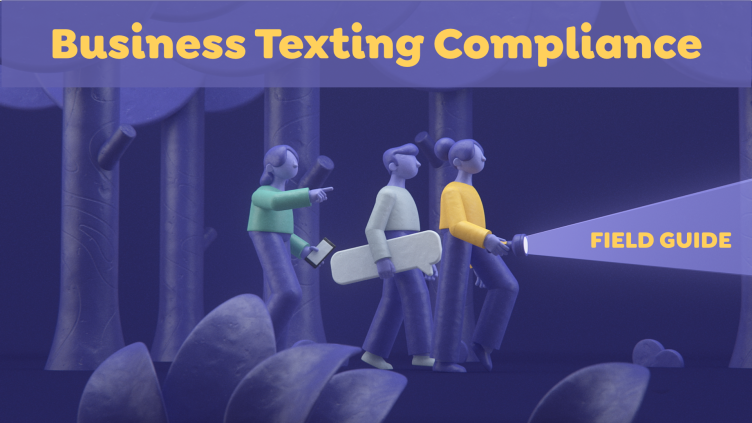Texting with your customers or prospects doesn’t start until you have one thing, permission from the individual. For the most part, it just comes down to texting people who want to be texted; but you should be aware of what the industry defines as obtaining consent for how you use text messaging. We’ll go over what constitutes consent for various use cases, as well as let you know a few ways you might go about obtaining that permission.
Consent is defined in the CTIA Messaging Principles and Best Practices on page 12. CTIA represents the U.S. wireless communications industry and lays down the ground rules for texting.
Conversational / Implied Consent
If somebody reaches out to you, that implies consent to respond to the individual with relevant information. This is the simplest form of consent; they text you first! But just because they text you a question, ask for a meeting, or are simply looking for more information; doesn’t mean that you can text them whenever you’d like. In order to send more information after the initial conversation, you must obtain express consent. Check out the next section to learn more about that.
Example:
- Your phone number is posted on your website for questions and inquiries.
- Prompt a text for more information on marketing content.
- Display your phone number within your invoice for further questions or concerns.
Understand TCR & How to Remain Compliant
Free Business Texting Compliance Field Guide

Informational / Express Consent
When the message that is being sent is purely informational and not promotional, you need express consent. Express consent comes in the form of an individual agreeing to receive texts in the future. You can obtain express consent by simply asking the customer over text after they text you, on your website, verbally, or on a written form. Really, it’s quite simple, ask for permission to text people in the future.
Example:
- You have a relationship with a customer and you verbally ask if sending information via text is alright with them.
- A customer or prospect texts your number but you cannot answer their question or resolve the issue on the spot. Ask if you can follow up via text.
- Ask customers to opt into text message updates on the status of a product or service.
Promotional / Express Written Consent
Marketing via text can be highly effective since your message has a very high likelihood of being opened, unlike an email. However, with the personal nature and effectiveness of text messaging, the industry wants to protect consumers from being spammed text messages from text messages. (Could you imagine a world full of endless robocalls AND robo-texts? No thank you.) The industry combats this by requiring express written consent to send promotional text messages. You can gain express consent via a checkbox online, a form, or other documentation that can be referenced in the future if needed. For more information on best practices for promotional messages, read this article.
Example:
- Marketing that leads to a form. The form has a checkbox that explains what they will be opting into
- When the customer is signing up for services, disclose that they are opting-in to receive texts during the duration of the service.
- Customer or prospect signs up to receive marketing.
Download: Business Texting Compliance Field Guide

What you'll get:
Understand TCR and how it works
What opt in/opt out automations you need to avoid fines.
Frequently used terms and what they mean
How to stay compliant

